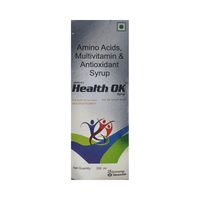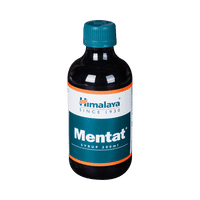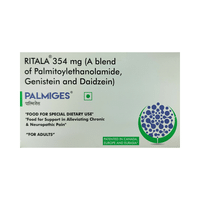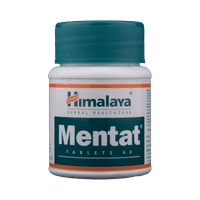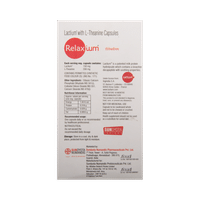food interaction for Zexto Plus
alcohol interaction for Zexto Plus
pregnancy interaction for Zexto Plus
lactation interaction for Zexto Plus
food
alcohol
pregnancy
lactation
Zexto Plus 0.25 mg/20 mg Tablet may be taken with or without food, but it is better to take it at a fixed time.
None
None
CAUTION
It is unsafe to consume alcohol with Zexto Plus 0.25 mg/20 mg Tablet.
UNSAFE
Zexto Plus 0.25 mg/20 mg Tablet is unsafe to use during pregnancy as there is definite evidence of risk to the developing baby. However, the doctor may rarely prescribe it in some life-threatening situations if the benefits are more than the potential risks. Please consult your doctor.
CONSULT YOUR DOCTOR
Zexto Plus 0.25 mg/20 mg Tablet is probably unsafe to use during breastfeeding. Limited human data suggests that the drug may pass into the breastmilk and harm the baby.
CONSULT YOUR DOCTOR
SALT INFORMATION FOR Zexto Plus
Alprazolam(0.25mg)
Uses
Alprazolam is used in the treatment of Anxiety and Panic disorder.
How it works
Alprazolam is a benzodiazepine. It works by increasing the action of a chemical messenger (GABA) which suppresses the abnormal and excessive activity of the nerve cells in the brain.
Common side effects
Memory impairment, Sleepiness, Nausea, Constipation, Difficulty in speaking, Impaired coordination, Abnormality of voluntary movements, Decreased libido, Sinus tachycardia, Ringing in ear, Difficulty in swallowing, Urinary incontinence, Nosebleeds, Hypotension (low blood pressure), Hallucination, Aggressive behavior
Fluoxetine(20mg)
Uses
Fluoxetine is used in the treatment of depression, Panic disorder and obsessive-compulsive disorder.
How it works
Fluoxetine is a selective serotonin reuptake inhibitor (SSRI) antidepressant. It works by increasing the levels of serotonin, a chemical messenger in the brain. This improves mood and physical symptoms of depression and also relieves symptoms of panic and obsessive disorders.
Common side effects
Weakness, Insomnia (difficulty in sleeping), Nervousness, Rash, Anxiety, Blurred vision, Decreased libido, Fatigue, Frequent urge to urinate, Gastrointestinal disturbance, Headache, Palpitations, Prolonged QT interval, Arrhythmia (irregular heartbeats), Discomfort when urinating, Dilatation of pupil, Delusion, Photosensitivity, Micturition disorders, SIADH (water retention due to excessive ADH), Serotonin syndrome
SUBSTITUTES FOR Zexto Plus
84 Substitutes
84 Substitutes
Sorted By
 Rs. 99pay 142% more per Tablet
Rs. 99pay 142% more per Tablet Rs. 51pay 24% more per Tablet
Rs. 51pay 24% more per Tablet Rs. 58pay 42% more per Tablet
Rs. 58pay 42% more per Tablet Rs. 39.90save 3% more per Tablet
Rs. 39.90save 3% more per Tablet Rs. 35.87save 12% more per Tablet
Rs. 35.87save 12% more per Tablet
Expert advice FOR Zexto Plus
- The addiction / habit-forming potential of this medicine is very high. Take it only as per the dose and duration advised by your doctor
- It may cause dizziness. Do not drive or do anything that requires mental focus until you know how this medicine affects you.
- Avoid consuming alcohol as it may increase dizziness and drowsiness.
- Inform your doctor if you are pregnant, planning to conceive or breastfeeding.
- Do not stop taking medication suddenly without talking to your doctor as that may lead to nausea, anxiety, agitation, flu-like symptoms, sweating, tremor, and confusion.
Frequently asked questions FOR Zexto Plus
Alprazolam
Q. What is Alprazolam used for?
Alprazolam is used to relieve excess (moderate to severe) anxiety and to treat anxiety associated with depression. It is not to be used for mild anxiety associated with the stress of day to day life situations.
Q. Is Alprazolam safe?
Alprazolam is safe if used at prescribed doses for the prescribed duration as advised by your doctor.
Q. Is Alprazolam addictive (habit-forming)?
Yes, the use of Alprazolam has addictive potential. Its use is associated with the risk of addiction for physical or psychological effects. The abrupt discontinuation of Alprazolam is therefore not advised to avoid serious withdrawal symptoms.
Fluoxetine
Q. What is Fluoxetine? What is it used for?
Fluoxetine is an antidepressant drug and belongs to the class of selective serotonin re−uptake inhibitors (SSRIs). In adults, this medicine is used to treat major depressive episodes, eating disorder (bulimia nervosa) and obsessive-compulsive disorder (OCD). In children and adolescents aged eight years and above, it is used to treat moderate to severe major depressive disorder.
Q. Does Fluoxetine cause sleepiness?
Somnolence (sleepiness) is a common side effect of Fluoxetine. However, Fluoxetine can also cause other sleep problems like insomnia (inability to sleep) and abnormal dreams. You must talk to your doctor if you experience sleep problems while taking Fluoxetine.
Q. Does Fluoxetine cause weight gain?
Fluoxetine does not cause weight gain, rather it causes weight loss, which is a common side effect seen with its use. Weight loss is usually proportional to baseline body weight. Please consult your doctor if you experience a change in weight while taking Fluoxetine.














